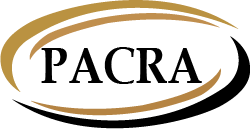ABOUT THE REGISTRY
Movable Property Registry System
The MPRS provides for online registration of security interests in movable assets pledged as collateral, pursuant to the Movable Property (Security Interest) Act No. 3 of 2016. The overall goal of the Act is to promote movable property based lending and ultimately increase access to credit by small scale businesses, in particular.
For your convenience, the site contains all information relating to protection of security interests in movable assets, starting from how security interests are created, perfected and discharged and, in case of default, enforced. The site also contains background information to the Ac, fees applicable and other useful information, including Frequently Asked Questions (FAQs).
You can also download the Movable Property (Security Interest) Act (hyper linked) and Regulations issued thereunder, namely, Statutory Instrument No. 77 of 2016, The Movable Property (Security Interest)(General) Regulations, 2016 (hyper linked), which prescribes registration procedures and other formalities and Statutory Instrument (SI) No. 73 of 2016, The Movable Property (Security Interest)(Fees) Regulations, 2016 (hyper linked) which prescribes the fees payable. You can equally down load as Guide to the Act (also hyper linked), that explains provisions of the Act and how the functions of the Collateral Registry.
The following are accessible on the Movable Property Registration System:
- Creation of User Account
- Registration of Financing Statement
- Amendment of Financing Statement as well as update, subordination and transfer of Financing Statements.
- Filing of Enforcement Notice
- Discharge of Financing Statement
- Search
- Request for Certificate of Status
Secure Transaction Laws
Secure Transaction Laws and the Movable Property (Security Interest) Act are undergirded by the following principles: -
- Broad Scope of Rights that can be created in all types of Property:
Secure transaction laws seek to cover all interests in movable or personal property. These include possessory and non-possessory rights over the different types of movable property. Such assets could be present or future. An example could be offsprings of an animal or crops to be grown. These are generally referred to as ‘after acquired property’. Further, the assets could range from raw materials to finished products. - Well-Functioning Registry System and Access to Information:
Secure transaction laws provide for centralised web based registration systems capable of facilitating real time data while security interests are made public through a public registry. - Well Defined and Transparent Perfection Rules:
Secure transaction laws provide clear rules on how to settle competing claims in collateral. The ‘first-to-file’ principle applies under which priority is determined by the order of perfection of the security interest. Priority rules are key in the event of default and eventual realisation from the collateral. Secured creditors should be able to predict their priority against other creditors. - Speedy, Inexpensive and Fair Enforcement System:
Secure transaction laws espouse easy enforcement of security interests against defaulters. As a general rule, the option of out of court settlement is given or a fast tracked court process. Self-help enforcement mechanisms are also provided. Secure transaction laws also provide appropriate rights of redemption and reinstatement for debtors. - Conflict of Laws
Secure transaction laws also take care of the eventuality where parties or the collateral may be subject to two or more jurisdictions. Thus, they provide for how to deal with conflict of laws situations.
Collateral Registry vs Credit Reference Bureau
Whereas a Credit Reference Bureau keeps information relating to the credit worthiness of borrowers, a Collateral Registry is concerned with assets pledged as collateral - whether they are encumbered and who has a priority security interest. Thus, a Collateral Registry is concerned with third party interests in movable assets.
Accessibility of Collateral Registry
The Collateral Registry is wholly electronic - there is no provision for physical lodgments. All transactions in the Registry, including payment for services, are made via PACRA’s website www.pacra.org. Accordingly, the prescribed forms are also electronic. To that end, regulation 24 of SI No. 77 of 2016 provides: -
24. (1) The Forms set out in the First Schedule shall be electronically accessible to users of the Collateral Registry.
2) The Forms referred to in subregulation (1) may provide for dynamic data capture of information for the purposes of ensuring accuracy of information.
As the Collateral Registry is electronic, it is accessible 24 hours a day, even outside official working hours. An application for registration can therefore be made any anytime, including weekends. The same applies to searches. However, the Registrar may occasionally suspend business for purposes of maintenance or where circumstances so require.
Implications of Submitting Incomplete Information
Failure to provide the information required under section 13, as read together with Statutory Instrument No 77 of 2016, disqualifies the financing statement from registration. A financing is also disqualified it not processed electronically or the prescribed fee has not been paid. Section 14 of the Act provides: -
14. A financing statement shall not be registered in the Collateral Registry if—
- it is not processed electronically in the prescribed manner or form;
- it does not contain the information specified in section thirteen; or
- the prescribed fee for a registration of the financing statement or an amendment to a registered financing statement has not been paid electronically.

